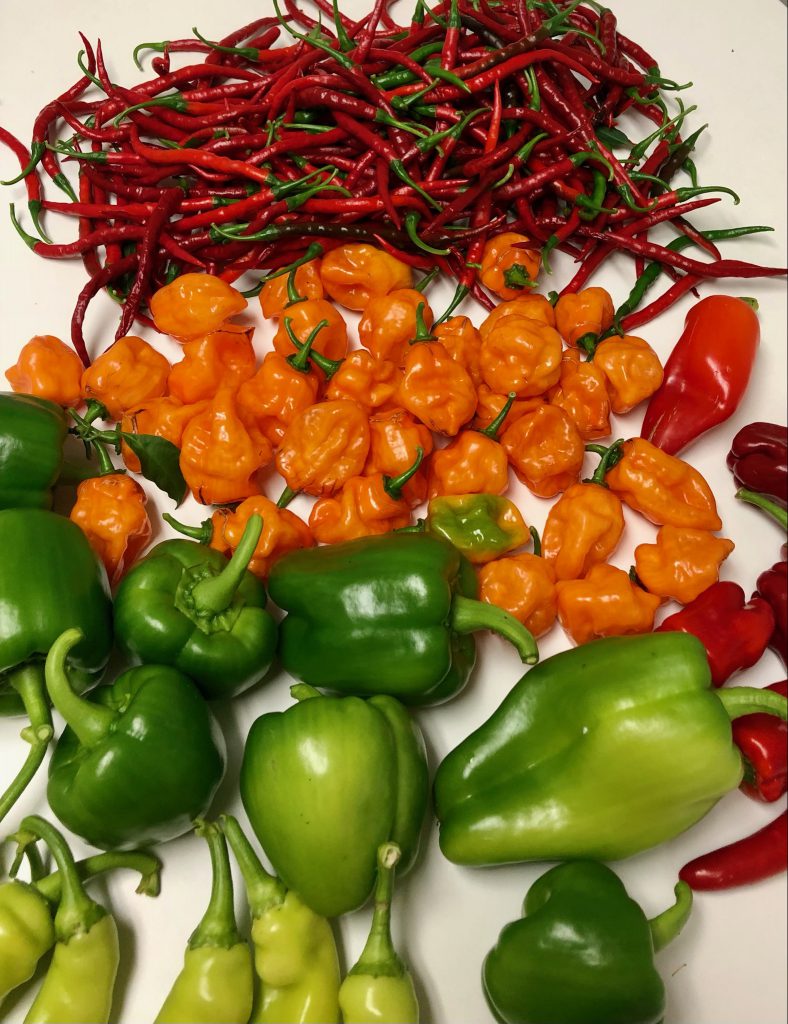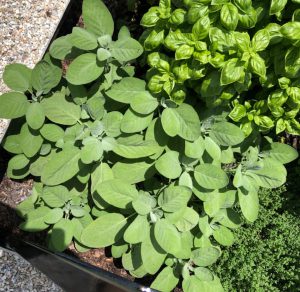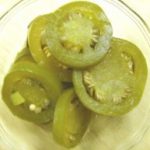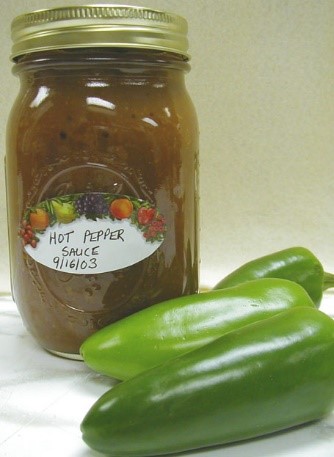By Matthew Orwat and Judy Corbus
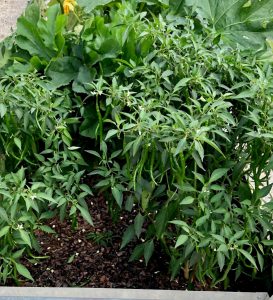
Cayenne Peppers growing this summer. Image Credit Matthew Orwat UF / IFAS Extension Washington County
As fall begins we often begin to think about the successes and failures of our vegetable gardens. Two of my successes this past summer have been pepper and basil.
A variety of peppers work great as transplants in mid to late spring. This spring a large variety of peppers were planted including Cayenne, Bell, Cubanelle, Habanero, Poblano, Anaheim, Cajun Belle, Havasau, Serrano, Jalapeno, and Banana. A loose, rich media was used containing coconut coir and composted organic humus to provide an excellent well-drained location which also retained moisture. Finding this delicate balance is difficult but can be achieved by using coconut coir and organic matter based garden soil mixtures. After the peppers were planted, they were side-dressed twice with a standard bagged 8-8-8 fertilizer blend containing micronutrients and once with an organic fertilizer. During the heat of the summer it was important to water the peppers at least every other day. Need for watering decreased as the fall weather approached, but was still necessary.
In fall, many gardeners think it might be a good time to remove their peppers plants, but they can be encouraged to produce peppers until frost and maybe a little later with protection. Oftentimes it is more practical to start or transplant new pepper plants the following spring, but it is possible to pot up and overwinter peppers in a sheltered area or greenhouse.
In addition to peppers, basil was especially bountiful this year. To save my basil bounty for the winter I have options to dry, blanch or make pesto. This should be done before the first frost, since basil is very sensitive to freezing temperatures. Other herbs that will usually overwinter well in the garden include thyme, chives and rosemary. They will need little to no protection. Additionally, sage might come back the following year if it is in a protected area. Herbs such as cilantro and parsley will thrive in our North Florida winters and should be planted now.
To preserve the bounty of your harvest for later use, you may can, pickle, or freeze peppers. Follow these USDA-approved guidelines from the National Center for Home Food Preservation:
Canning: https://nchfp.uga.edu/how/can_04/peppers.html
Pickling:
- Pickled Bell Peppers: https://nchfp.uga.edu/how/can_06/pickled_bell_peppers.html
- Pickled Hot Peppers: https://nchfp.uga.edu/how/can_06/pickled_hot_peppers.html
- Pickled Jalapeno Rings: https://nchfp.uga.edu/how/can_06/pickled_jalapeno_rings.html
- Pickled Yellow Pepper Rings: https://nchfp.uga.edu/how/can_06/yellow_pepper_rings.html
- Cayenne Pepper Sauce: https://nchfp.uga.edu/how/can_03/cayenne_peppersauce.html
Freezing:
- Bell or Sweet Peppers: https://nchfp.uga.edu/how/freeze/pepper_bell.html
- Hot Peppers: https://nchfp.uga.edu/how/freeze/pepper_hot.html
- Woodland Pinkroot Adds Vibrant Color to Spring Landscapes - April 27, 2023
- Easy Care Roses for the Gulf South - April 20, 2023
- Herb Gardening: When Oregano is Flavorless - March 9, 2023

